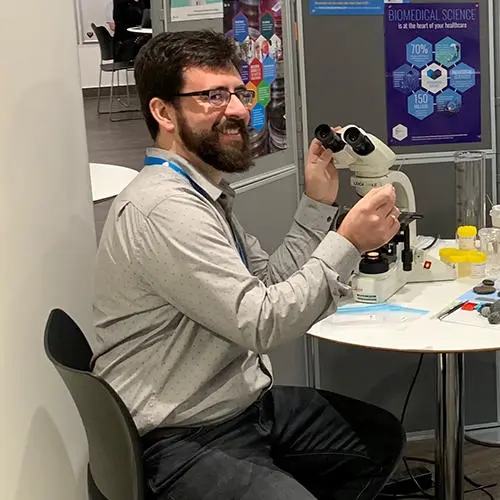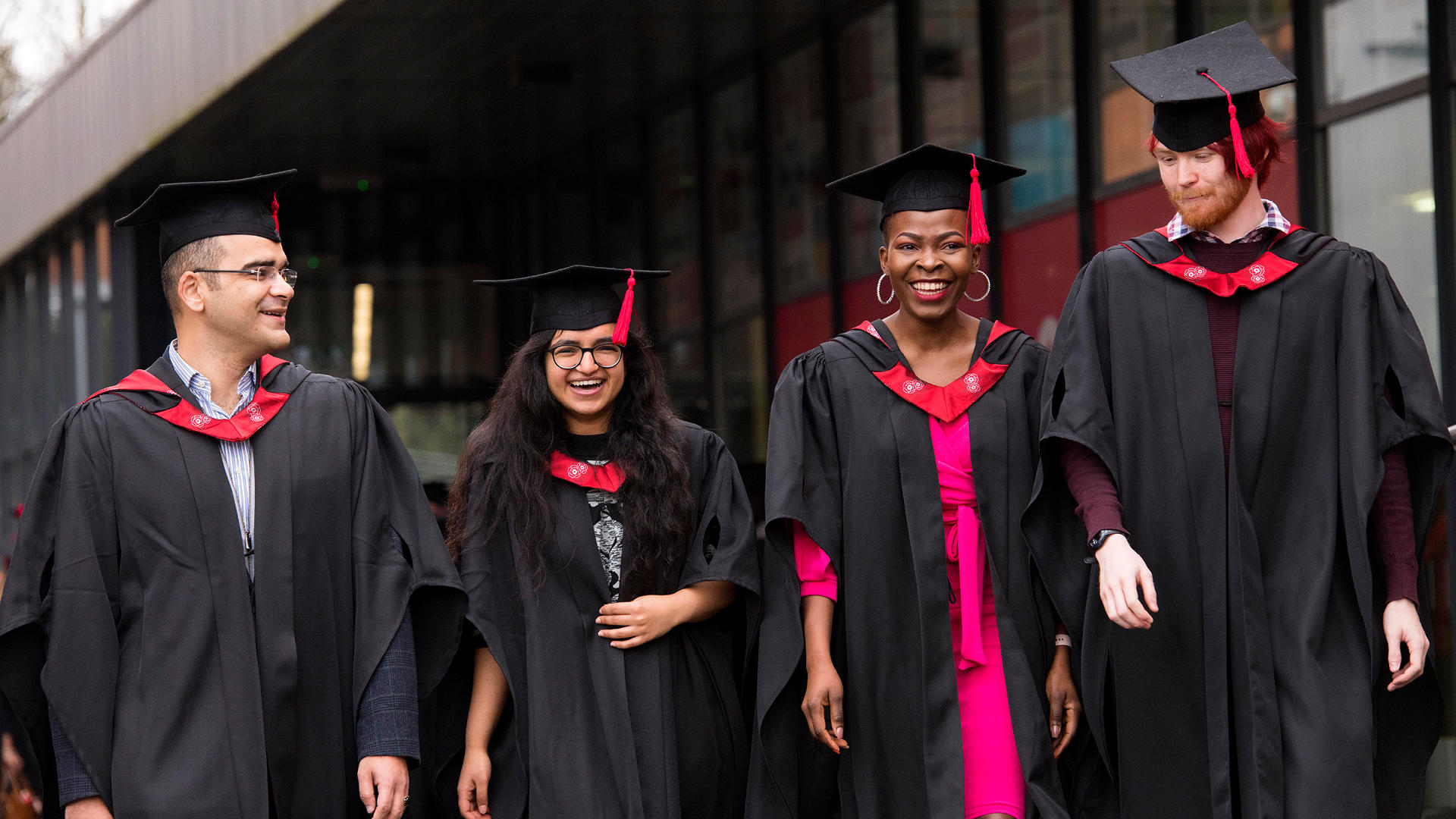Adam Turner, Biomedical Science graduate from 2015, always had an interest in medical science. Having gone straight into the workplace from high school it wasn’t until Adam was in his late twenties that he decided to have a career change and enter higher education.
Whilst studying at the University of Central Lancashire, Adam worked on placement in the Histopathology department of Christie Hospital in Manchester, specialising in cancer treatment. The placement proved to be successful for Adam and set him up for his new career in biomedical science. The hospital offered Adam a part-time position as a Laboratory Assistant whilst he was in his final year and then appointed him for the job of Trainee Biomedical Scientist upon passing his degree.
Following completion of his registration portfolio, Adam was promoted to state-registered Biomedical Scientist. He then completed additional training and study towards his IBMS Specialist Diploma in Cellular Pathology. On completion of this specialist qualification, Adam applied for a role which gave him the opportunity to receive consultant led training towards the qualification of IBMS Diploma of Expert Practice in Histological Dissection. He was then appointed to his current position of Advanced Practitioner in Histological Dissection.

"It totally changed my career for the better, opening doors to new and exciting opportunities, I'm so glad I went back into education."
— Adam speaking about his time studying with us
Adam explained his role as part of the cancer diagnosis and treatment process: “It is our job to dissect specimens taken from biopsies to large multi-organ resections, traditionally a role performed exclusively by doctors, but now increasing so by advanced practitioners. We describe the specimen in detail using appropriate medical terminology, including the orientation, measurements and key macroscopic features, forming the initial part of the histology report. We then take representative sections of tissue which are processed into slides to be viewed by our histopathology consultants. The microscopic analysis of these tissue sections informs cancer staging and patient prognosis, which ultimately affects their onward treatment.”
When asked what his advice for students would be, he said: “When an opportunity presents itself, go for it. Give it everything you have got, and you will be a success.”

